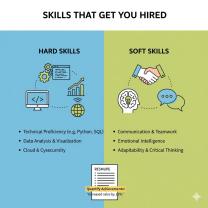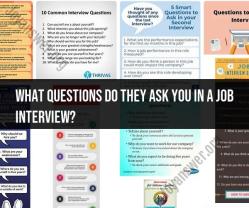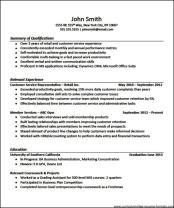Why job is better than business?
Whether a job is better than a business or vice versa depends on individual preferences, goals, and circumstances. Each has its advantages and disadvantages, and what is considered "better" is highly subjective. Here are some situations in which a job may be considered better than a business:
Stability and Predictability: Jobs typically offer more stability and predictability in terms of income. You receive a regular paycheck, and your salary is less affected by fluctuations in the market or economic conditions.
Benefits and Security: Many jobs come with benefits such as health insurance, retirement plans, paid time off, and job security. This can provide peace of mind and financial security for employees.
Less Responsibility: With a job, you are generally responsible for your specific role and duties but not the overall management and decision-making of the company. This can result in lower stress and responsibility levels.
Work-Life Balance: Some jobs offer better work-life balance, allowing employees to leave work behind at the end of the day and focus on their personal lives.
No Financial Risk: In a job, you don't have to invest your own money or take on financial risks. You receive a consistent income regardless of the company's financial performance.
Training and Development: Many jobs offer opportunities for training, skill development, and career advancement within a structured corporate environment.
Regular Pay: With a job, you can rely on a regular, fixed paycheck, which can help with budgeting and financial planning.
Simplicity: Jobs are generally straightforward in terms of duties and responsibilities, making them suitable for individuals who prefer a defined role without the complexities of running a business.
On the other hand, starting and running a business can have its advantages, such as the potential for greater financial rewards, autonomy, and the ability to pursue your passion. However, it comes with higher risks, responsibilities, and the need for entrepreneurial skills.
Ultimately, the decision to choose a job or start a business depends on your personal and financial goals, risk tolerance, skills, and circumstances. Some people prefer the stability and security of a job, while others are drawn to the independence and potential rewards of entrepreneurship. It's essential to evaluate your own priorities and consider what aligns best with your long-term objectives. Additionally, it's worth noting that many people transition from jobs to businesses or vice versa at various points in their careers, so your path may evolve over time.
1. Advantages of having a job compared to running a business
Here are some advantages of having a job compared to running a business:
- Job security: People with jobs are typically more likely to have job security than business owners. This is because employees are protected by labor laws and regulations.
- Financial stability: People with jobs typically have a more stable income than business owners. This is because employees receive a regular paycheck, regardless of how well the company is doing.
- Benefits: People with jobs typically have access to benefits such as health insurance, paid time off, and retirement savings plans.
- Less responsibility: Employees typically have less responsibility than business owners. This is because employees are only responsible for their own work, while business owners are responsible for the entire company.
- More flexibility: Some jobs offer more flexibility than others, but in general, employees have more flexibility than business owners. This is because employees can typically set their own hours and work from home, while business owners often have to work long hours and be available 24/7.
2. How to decide between pursuing a job or starting a business as a career path
There is no right or wrong answer to the question of whether to pursue a job or start a business. The best decision for you will depend on your individual circumstances and preferences.
Here are some factors to consider when making your decision:
- Your skills and interests: What are you good at? What do you enjoy doing?
- Your financial situation: Do you have enough money to start a business?
- Your risk tolerance: How much risk are you comfortable with?
- Your support system: Do you have people who can help you start and run a business?
- Your lifestyle goals: What do you want to achieve in life?
If you are unsure which path to choose, it can be helpful to talk to people who have experience in both jobs and businesses. You can also seek professional advice from a career counselor or business coach.
3. Job security and financial stability in comparison to entrepreneurship
People with jobs typically have more job security and financial stability than business owners. This is because employees are protected by labor laws and regulations, and they receive a regular paycheck, regardless of how well the company is doing.
Business owners, on the other hand, are more likely to experience financial insecurity and job insecurity. This is because businesses can fail, and business owners are personally responsible for the debts of their businesses.
However, it is important to note that there are also successful business owners who have a high degree of job security and financial stability. The key to success as a business owner is to have a well-thought-out business plan and to execute the plan effectively.
4. Factors to consider when determining whether a job is better for you than a business
When determining whether a job is better for you than a business, you should consider the following factors:
- Your skills and interests: Do you have the skills and interests required for the job?
- Your financial situation: Can you afford to take the job?
- Your career goals: Will the job help you achieve your career goals?
- Your lifestyle goals: Will the job allow you to achieve your lifestyle goals?
5. How to achieve work-life balance and personal fulfillment with a job
It is possible to achieve work-life balance and personal fulfillment with a job. Here are some tips:
- Set boundaries: It is important to set boundaries between your work life and your personal life. This means not checking work emails or messages outside of work hours, and not working on weekends or holidays.
- Take breaks: It is important to take breaks throughout the day, even if it is just for a few minutes. Get up and move around, or do something that you enjoy.
- Delegate tasks: If you can, delegate tasks to others. This will free up your time so that you can focus on the most important things.
- Say no: It is okay to say no to extra work or commitments, especially if you are feeling overwhelmed.
- Take care of yourself: Make sure to get enough sleep, eat healthy foods, and exercise regularly. This will help you to be more productive and fulfilled at work.
If you are struggling to achieve work-life balance, you can talk to your manager or HR department. They may be able to offer you some suggestions or support.
Ultimately, the decision of whether to have a job or run a business is a personal one. There is no right or wrong answer, and the best decision for you will depend on your individual circumstances and preferences.











